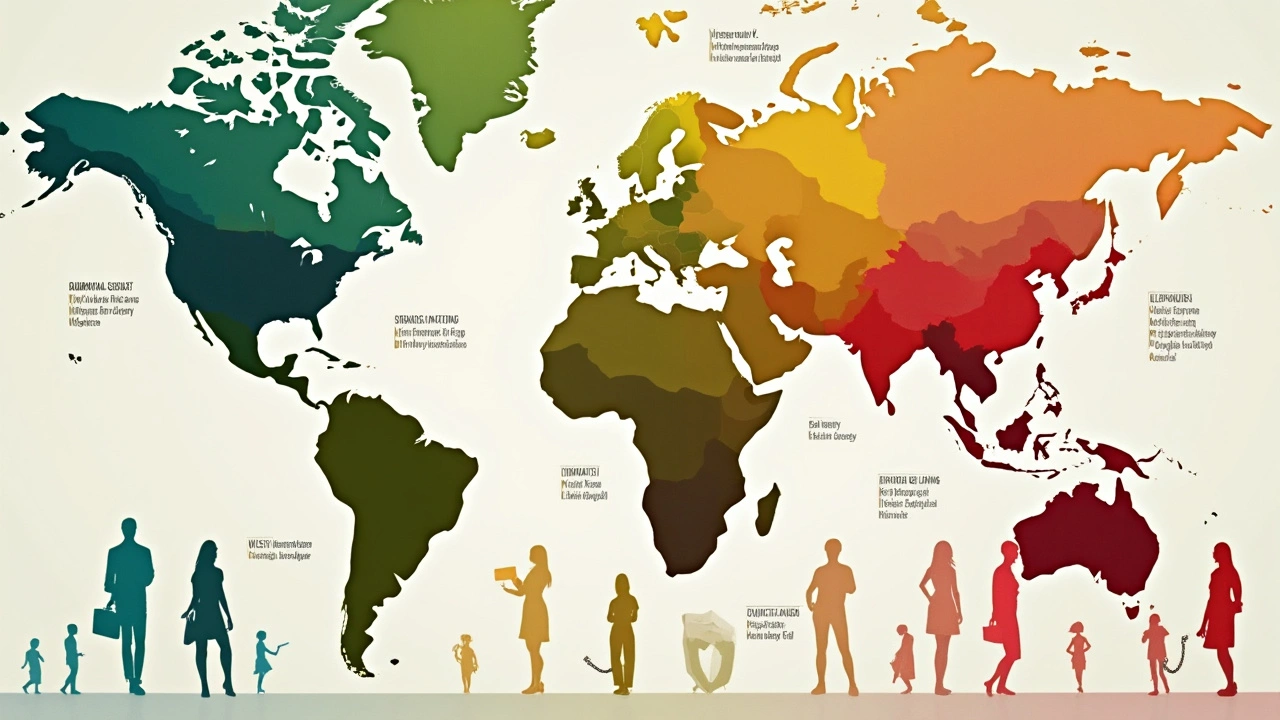Global Sex Work Laws Explained – What You Need to Know
If you’ve ever wondered why a night out feels totally different in Amsterdam versus a city in the US, the answer often lies in the law. Sex work sits on a legal spectrum that runs from total criminalisation to full de‑criminalisation, and each spot on that line changes what’s allowed, what’s risky, and how safe a client or worker can be. Below we break down the most common frameworks, give real‑world examples, and hand you practical advice if you’re traveling or working in this space.
Types of Legal Frameworks
First up, the four main models you’ll see around the world:
- Criminalisation: Both selling and buying sexual services are illegal. Penalties can include fines, jail time, or forced registration. This is common in many parts of the US and Eastern Europe.
- Partial criminalisation (or the “Nordic model”): Buying sex is illegal, but selling isn’t. The idea is to protect the worker while punishing the client. Sweden, Norway, and Canada (in parts) use this approach.
- Legalisation: Sex work is permitted but heavily regulated. Workers need licences, health checks, and must work in designated zones. The Netherlands and parts of Germany follow this path.
- De‑criminalisation: No specific laws target sex work at all – it’s treated like any other job. New Zealand is the flagship example, and several Australian states are moving this way.
Each model comes with its own bureaucratic hoops and cultural attitudes, which directly shape safety, stigma, and the bottom line for both workers and clients.
What This Means for You
Traveling? Always check the local stance before you book anything. In a fully criminalised country, even a discreet meeting can lead to police raids, sudden fines, or unwanted attention. In places with the Nordic model, only the buyer risks legal trouble, so you might see stricter venue checks or increased pricing to cover that risk.
Working as an escort? Know whether you need a licence or health certificate. In regulated spots, failure to register can mean a hefty fine and loss of credibility. In de‑criminalised zones, you’ll find more community support groups, which can be a lifesaver for safety and mental health.
Safety is always tied to the law. Studies from New Zealand show lower rates of violence against sex workers in de‑criminalised settings because police can intervene without fear of prosecution. Conversely, criminalised environments push the trade underground, making it harder to screen clients or report abuse.
Here are three quick tips to stay safe, no matter the legal backdrop:
- Verify the platform: Use reputable sites that verify profiles and upload ID checks. This cuts down on scams and lets you see if a worker follows local regulations.
- Discuss boundaries early: A clear conversation about services, payment, and safety measures prevents misunderstandings that could attract legal trouble.
- Keep records: Even in places where cash is king, a discreet text trail or receipt can protect both parties if law enforcement shows up.
Finally, keep an eye on policy shifts. Several US states are debating de‑criminalisation bills, while some European cities are tightening licences for brothels. A quick internet search or a look at recent news can keep you ahead of sudden rule changes.
Bottom line: the legal environment shapes everything from pricing to personal safety. By knowing which model applies in your destination, checking platform credibility, and setting clear boundaries, you can enjoy the experience without unwanted legal headaches.
Sex Worker Rights Around the Globe: Where Things Stand and What You Should Know
Curious about how sex worker rights differ worldwide? This article breaks down the legal landscape, real benefits, and the hurdles sex workers face in different countries. Get tips on staying safe, a snapshot of what's legal where, and reasons why these rights matter for everyone. Learn what to expect from the sex work industry, whether you're interested in advocacy or just want to understand how laws impact lives. No filler—just the facts you need.
Continue Reading